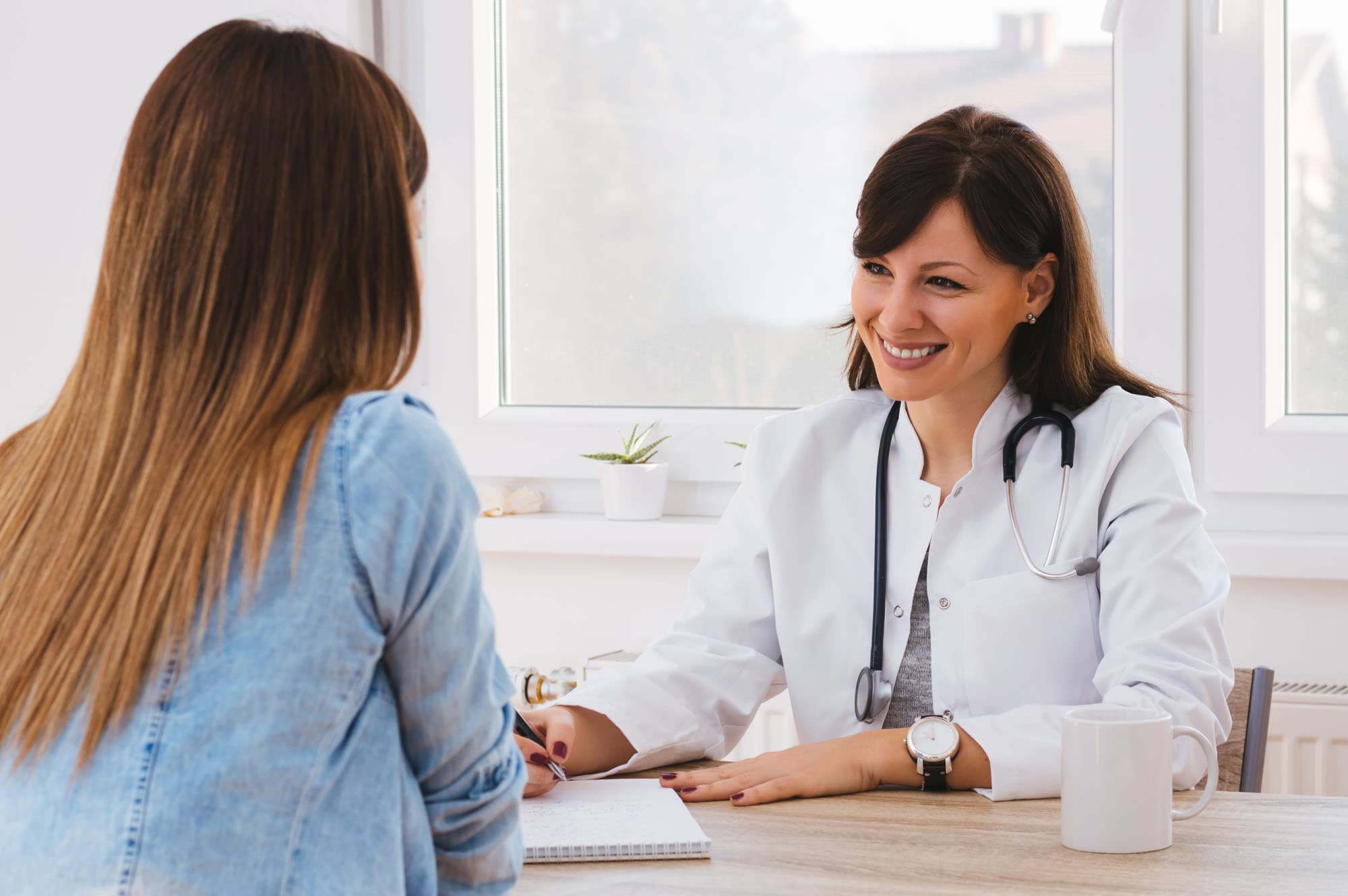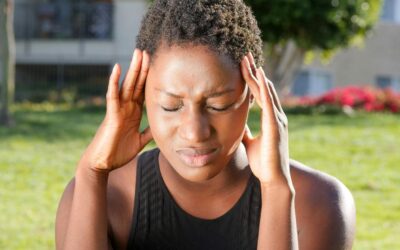Endometriosis

Endometriosis a disorder involving the endometrium and can cause debilitating pain and unusually heavy bleeding. In endometriosis, endometrial tissue, distributed by unknown mechanisms to other locations in the body (e.g., fallopian tubes, ovaries, pelvic lining) continues to act according to it’s normal cycle.
If located outside the uterus, blood from endometrial bleeding has no exit from the body. Trapped blood irritates surrounding tissue, and may lead to cysts, scars and adhesion of nearby organs.
Endometriosis may impair fertility and cause pain during the cycle, during bowel movements, sometimes during urination, and during intercourse.
Most often, endometriosis is found on the:
- Ovaries
- Fallopian tubes
- Tissues that hold the uterus in place
- Outer surface of the uterus
Other sites for growths can include the vagina, cervix, vulva, bowel, bladder, or rectum. Rarely, endometriosis appears in other parts of the body, such as the lungs, brain, and skin.
Symptoms of Endometriosis
- Pain. This is the most common symptom. Women with endometriosis may have many different kinds of pain. These include:
- Very painful menstrual cramps. The pain may get worse over time.
- Chronic (long-term) pain in the lower back and pelvis
- Pain during or after sex. This is usually described as a “deep” pain and is different from pain felt at the entrance to the vagina when penetration begins.
- Intestinal pain
- Painful bowel movements or pain when urinating during menstrual periods. In rare cases, you may also find blood in your stool or urine.
- Bleeding or spotting between menstrual periods. This can be caused by something other than endometriosis. If it happens often, you should see your doctor.
- Infertility, or not being able to get pregnant.
- Stomach (digestive) problems. These include diarrhea, constipation, bloating, or nausea, especially during menstrual periods.

Reach out today to book your appointment today.
Commonly Asked Questions
What is endometriosis?
Endometriosis, sometimes called “endo,” is a common health problem in women. It gets its name from the word endometrium, the tissue that normally lines the uterus or womb. Endometriosis happens when tissue similar to the lining of the uterus grows outside of your uterus and on other areas in your body where it doesn’t belong.
Most often, endometriosis is found on the:
- Ovaries
- Fallopian tubes
- Tissues that hold the uterus in place
- Outer surface of the uterus
Other sites for growths can include the vagina, cervix, vulva, bowel, bladder, or rectum. Rarely, endometriosis appears in other parts of the body, such as the lungs, brain, and skin.
Why does endometriosis cause pain and health problems?
Endometriosis growths are benign (not cancerous). But they can still cause problems.
Endometriosis happens when tissue similar to the lining on the inside of your uterus or womb grows outside of your uterus or womb where it doesn’t belong. Endometriosis growths may swell and bleed in the same way the lining inside of your uterus does every month — during your menstrual period. This can cause swelling and pain because the tissue grows and bleeds in an area where it cannot easily get out of your body.
The growths may also continue to expand and cause problems, such as:
- Blocking your fallopian tubes when growths cover or grow into your ovaries. Trapped blood in the ovaries can form cysts.
- Inflammation (swelling)
- Forming scar tissue and adhesions (type of tissue that can bind your organs together). This scar tissue may cause pelvic pain and make it hard for you to get pregnant.
- Problems in your intestines and bladder
What causes endometriosis?
No one knows for sure what causes this disease. Researchers are studying possible causes:
- Problems with menstrual period flow. Retrograde menstrual flow is the most likely cause of endometriosis. Some of the tissue shed during the period flows through the fallopian tube into other areas of the body, such as the pelvis.
- Genetic factors. Because endometriosis runs in families, it may be inherited in the genes.
- Immune system problems. A faulty immune system may fail to find and destroy endometrial tissue growing outside of the uterus. Immune system disorders and certain cancers are more common in women with endometriosis.
- Hormones. The hormone estrogen appears to promote endometriosis. Research is looking at whether endometriosis is a problem with the body’s hormone system.
- Surgery. During a surgery to the abdominal area, such as a Cesarean (C-section) or hysterectomy, endometrial tissue could be picked up and moved by mistake. For instance, endometrial tissue has been found in abdominal scars.
Can I get pregnant if I have endometriosis?
Yes. Many women with endometriosis get pregnant. But, you may find it harder to get pregnant. Researchers think endometriosis may affect as many as one in every two women with infertility.
No one knows exactly how endometriosis might cause infertility. Some possible reasons include:
- Patches of endometriosis block off or change the shape of the pelvis and reproductive organs. This can make it harder for the sperm to find the egg.
- The immune system, which normally helps defend the body against disease, attacks the embryo.
- The endometrium (the layer of the uterine lining where implantation happens) does not develop as it should.
If you have endometriosis and are having trouble getting pregnant, talk to your doctor. He or she can recommend treatments, such as surgery to remove the endometrial growths

Treatment of Endometriosis at Westend Women’s Health
At Westend Women’s Health, the goal of treatment is lasting reduction of pain during menses. We can also support the physical symptoms of endometriosis by understanding which symptoms are most burdensome for you. Alongside the pain comes a better understanding of hormones and lifestyle changes that could dramatically reduce endobelly and inflammation.
A typical approach to lessening the severity of pain due to endometriosis can include treatment with acupuncture to lower inflammation and balance hormones, pelvic floor exercises to train muscles to contract and relax in relation to bladder function as well as massage therapy that can reduce feelings of anxiety and stress. Naturopathic medicine can provide recommendations for nutritional supplements, botanical medicine and homeopathic remedies.
Reach out today to book your appointment today.
Blog grid
How Sun Protection Supports Radiant, Healthy Skin Naturally
Taking a whole-body approach to skincare is essential because glowing, healthy skin isn't just about what you put on it, but also about how you nourish and care for your entire system. As we soak up the long days of summer, one essential ritual often overlooked (or...
Understanding Migraines: A Holistic Approach to Lasting Relief
Migraines aren't just “bad headaches.” They’re a complex neurological condition that can deeply impact your daily life, affecting your work, your relationships, your sleep, and your emotional well-being. If you're tired of managing migraines with short-term solutions...
Chiropractic Care Is More Than You Think
When most people think of chiropractic care, they think of back pain or hearing a loud “crack.” But there’s so much more to it. Chiropractic isn’t just about bones; it’s about how your nervous system, hormones, digestion, and stress response all work together. This...



